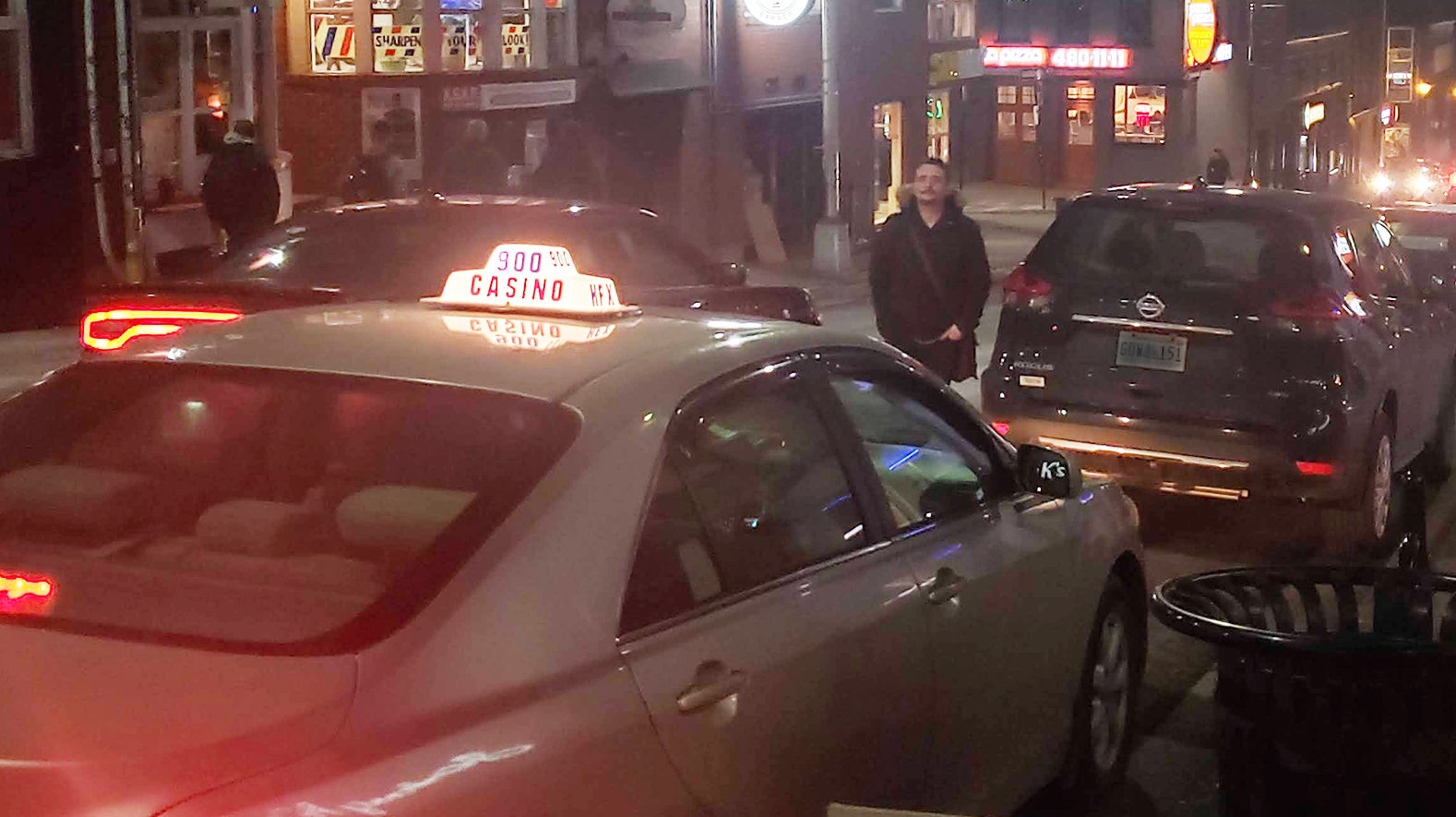Halifax steps closer to ride-hailing after council vote
City staff will draft bylaws on per-trip and licensing fees

caption
A taxi in downtown HalifaxHalifax regional council voted on Tuesday afternoon to direct staff to draft new bylaws that pave the way for ride-hailing companies like Uber and Lyft to operate in the city.
After more than two hours of debate and multiple amendments to the original motion, council approved a host of recommendations dealing with licensing fees and per-trip fees that ride-hailing services would have to pay.
Council did not approve a recommendation that sought to allow ride-hailing drivers to operate on a Class 5 licence.
Many Halifax residents are enthusiastic about bringing ride-hailing services to the city, which operate from cell phone apps using online payment methods. In a 2018 Vehicle for Hire Industry Review survey by Hara Associates commissioned by HRM, 88 per cent of respondents were in favour of ride-hailing companies setting up shop in Halifax.
Safety for ride-hailing passengers
Much of council’s debate around the issue was about safety. Coun. Sam Austin moved a motion early, asking for a supplemental report looking into creating a database of drivers to make sure the city knows who the drivers are behind the ride-hailing services.
While 72 per cent of respondents to Hara Associate’s survey cited safety as a reason they wanted Uber to come to the city, some councillors voiced concerns about ride-hailing drivers operating without the same strict rules that taxi drivers must follow.
If a taxi driver in the HRM was fired for inappropriate behaviour, Austin asked council, “What’s to say you can’t turn around and become an Uber driver?”
In 2019, Uber released a safety report disclosing more than 3,000 reported assaults which took place during Uber trips in the U.S. in 2017 and 2018. These assaults include both those by drivers and by passengers.
The proposed bylaws will require drivers to pass a vulnerable sector check, criminal record and child abuse registry checks.
“I want to be able to look myself in the eye after all this is said and done, after someone is inevitably assaulted in a ride-share vehicle and say we did everything we could to make sure that didn’t happen,” Austin told council during the debate.
Some rules, like requiring ride-hailing drivers to have the same advanced licence as taxi drivers, may discourage many ride-hailing companies from coming at all, Coun. Matt Whitman said.
Right now, all taxi drivers in HRM are required to have a Class 4 licence, which requires medical and eye tests as well as more strenuous road testing, and 18 as a minimum age. In many cities where Uber and Lyft operate, only Class 5 licenses are required — though Uber does operate in cities like Calgary which require the advanced licensing.
“I think some of the startups will come to Halifax,” Whitman said in an interview after the motion to approve the regulations passed. “But Uber and Lyft are crystal clear they won’t be coming because of the Class 4 licensing issue.”
However, both Jacques Dubé, Halifax’s chief administrative officer, and Hilary Hayes, the city’s licensing supervisor, said neither company has made such a claim directly, though lobbyists from both companies have spoken to councillors about loosening guidelines.
Changes to taxi licensing system, and per-trip fees
Council voted to request other changes to ride-for-hire services as outlined in the transportation standing committee’s report.
Under the proposed changes, each ride-hailing driver would be required to pay a $300 fee, and each company would pay a licensing fee. The amount would depend on the company’s size. For example, a large company like Uber would pay more than smaller ride-hailing startups.
Each company would also pay a 20 cent per trip fee to the municipality. Coun. Shawn Cleary passed a motion which would seek to raise that amount and siphon the fee into the city’s integrated mobility plan.
Despite councillors’ concerns, public support for ride-hailing apps is widespread.
Nicole Jackson, who lives in a suburban area near Bayers Lake, believe it’s high time for new transportation options.
“When you’re calling dispatch, they’re not super helpful in telling you when they’re going to be there, what the availability is like,” Jackson said in a phone interview.
“It’s the people that are asking for it. They should take their thoughts and needs into consideration.”
Council will host two readings of the new rules before a vote on the implementation of the new bylaws later this year.
About the author

Sam Gillett
Sam calls Orillia, Ontario home. When he's not chasing Signal stories, he can be found sketching in cafes, watching soccer or following news...
